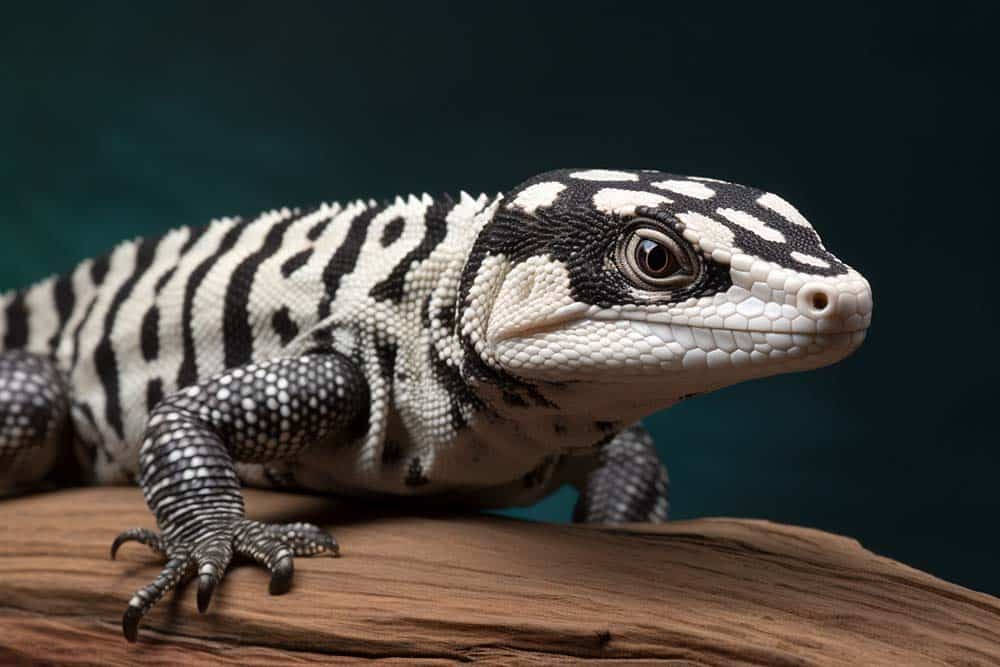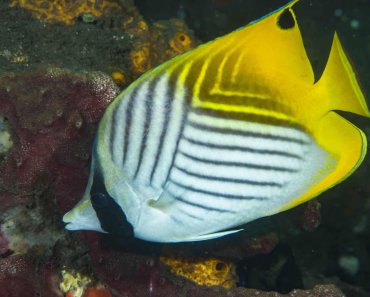
The Tegu lizard is a fascinating creature, known for its large size, unique appearance, and intelligence. These lizards are native to South America and can grow up to four feet in length.
They have strong jaws and sharp teeth that allow them to eat a variety of prey, including small mammals, eggs, and insects. Tegu lizards are often kept as pets due to their friendly demeanor and playful nature.
The Concern of a Tegu Lizard Bite
While Tegu lizards may seem harmless due to their playful nature, they can bite when provoked or mishandled. The bite of a Tegu lizard can cause serious injury or infection if not treated promptly.
It is important to understand the behavior of these creatures in order to prevent bites and properly care for any injuries that may occur. Tegu lizards have natural instincts that lead them to protect their territory from perceived threats.
This means they may become aggressive when feeling threatened or cornered. Additionally, handling a Tegu lizard improperly can lead them to feel stressed or agitated which may result in biting.
It is important for pet owners especially to understand the causes and prevention of Tegu lizard bites in order to keep themselves safe while interacting with their pets. By taking proper precautions, understanding the warning signs of an agitated lizard, preparing the enclosure correctly, socializing your pet with regular handling sessions, you will be able to minimize the risk of a bite while enjoying all the benefits that owning one of these fascinating creatures has on offer.
Causes of Tegu Lizard Bites
Natural instincts and territorial behavior of Tegu lizards
Tegu lizards are known for their territorial nature, which means that they will instinctively defend their territory when they feel threatened. This territorial behavior can be triggered by a variety of factors, such as the presence of other animals or humans, loud noises, or sudden movements. Tegus can be particularly aggressive during breeding season when males become more territorial and may attack anything that enters their space.
In addition to this natural aggression, Tegus are also carnivorous predators that use their powerful jaws to capture and kill prey. This means that they have a strong bite force and sharp teeth that can cause serious injuries to humans.
Provocation or mishandling by humans
Another common cause of Tegu lizard bites is provocation or mishandling by humans. This can happen when people attempt to handle wild Tegus without proper training or experience, or when pet owners mishandle their pets.
Tegus are not naturally aggressive towards humans but may become defensive if they feel threatened. Common mistakes made by inexperienced handlers include approaching the animal too quickly or aggressively, trying to pick it up without warning, or making sudden movements that startle the lizard.
Pet owners who do not properly socialize and train their Tegus may also inadvertently provoke them into biting. For example, if a Tegu is not accustomed to regular handling and interaction with people, it may become agitated and defensive whenever someone approaches its enclosure.
Lack of proper training or knowledge on how to handle Tegu lizards
A lack of proper training or knowledge on how to handle Tegu lizards is another common cause of bites. Whether you’re dealing with wild animals in their natural habitat or pet Tegus in captivity, it’s important to understand their behaviors and how to interact with them safely. Many people are not aware of the risks associated with handling wild Tegus or may underestimate the potential danger.
Similarly, many pet owners do not take the time to properly train and socialize their Tegus, which can lead to aggression and biting. To minimize the risk of Tegu lizard bites, it’s important to educate yourself about these animals and their behavior.
This can include reading up on Tegu lizards online or consulting with an expert who has experience handling these reptiles. Additionally, if you’re planning to keep a Tegu as a pet, be sure to research proper care and training techniques before bringing one home.
Overall, there are several causes of Tegu lizard bites that people should be aware of. Natural instincts such as territorial behavior and carnivorous tendencies can make these animals unpredictable when they feel threatened. Provocation or mishandling by humans can often trigger defensive reactions that lead to biting, especially in inexperienced handlers.
Prevention of Tegu Lizard Bites
General Preventative Measures
When it comes to wild or unfamiliar Tegu lizards, the best way to prevent bites is to avoid direct contact with them altogether. Tegus can be territorial and may view humans as a threat if they feel threatened themselves.
It’s always best to observe these animals from a safe distance and avoid approaching them too closely. For pet owners, proper enclosure management is key in preventing bites.
Pet Tegus should be securely kept in enclosures that are appropriate for their size and needs. This will keep them from wandering around your home, which could result in an unexpected encounter that could lead to a bite.
Specific Preventative Measures for Pet Owners
Pet owners should also take specific steps when it comes to preventing taming-related bites from their Tegus. These reptiles need plenty of hiding spots, adequate space, and proper temperature control in their enclosures.
They are also social animals that require regular handling and interaction with their human companions. Training and socialization are critical for ensuring that your pet Tegu is comfortable around humans.
Handling your pet regularly will get them used to human interaction so they won’t be as easily agitated or stressed when you approach them. Identifying warning signs is another essential step for preventing bites from your pet Tegu.
When stressed or agitated, these reptiles may exhibit certain behaviors such as hissing or puffing up their body size indicating that they are feeling threatened or defensive. Avoid interactions during those times until your pet calms down.
First Aid for a Bite
Cleaning the Wound
If you do get bitten by a wild or pet Tegu lizard, it’s important to clean the wound immediately with soap and water to prevent infection. Use an antiseptic solution like hydrogen peroxide or isopropyl alcohol to clean the wound.
Applying Pressure to Stop Bleeding
If the wound is bleeding, apply pressure with a clean towel or cloth until the bleeding stops. If it doesn’t stop after a few minutes, seek medical attention.
Seeking Medical Attention if Necessary
If you experience symptoms such as severe pain, redness, swelling or fever, it’s imperative that you seek medical attention right away. A Tegu lizard bite can be serious and may require antibiotics or other medical treatment to avoid complications.
Overall, taking proper preventative measures and being aware of warning signs can go a long way in preventing Tegu lizard bites. Always err on the side of caution when approaching these fascinating creatures and make sure to give them the respect they deserve.
Conclusion:
Tegu lizards are fascinating creatures that have become popular as pets in recent years. However, it is important to note that they do possess territorial instincts and can be dangerous if not properly handled. In this article, we have discussed the causes of Tegu lizard bites and how to prevent them.
It is crucial to understand Tegu lizard behavior in order to avoid being bitten. As we discussed earlier, they are territorial animals and may perceive humans or other animals as a threat.
Therefore, it is best to avoid direct contact with wild or unfamiliar Tegu lizards. For pet owners, preparing an adequate enclosure for your pet Tegu lizard is essential.
This includes providing enough space and hiding spots as well as proper temperature control. Additionally, handling your pet regularly and identifying warning signs of agitation or stress can help prevent bites.
In the unfortunate event that a bite does occur, immediate first aid should be administered by cleaning the wound and applying pressure to stop bleeding. Seeking medical attention if necessary is also important.
Owning a Tegu lizard can be a rewarding experience if proper care is taken. By understanding their behavior and following preventative measures such as preparing an appropriate enclosure and handling them with care, you can ensure a safe and enjoyable relationship with your pet.


























